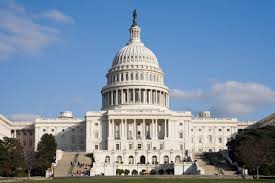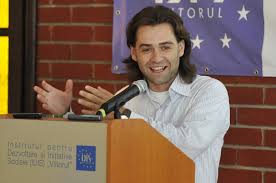(Monkey Cage) The hacking of Sony Pictures and the terrorist attack on Charlie Hebdo in Paris differ in obvious ways: One involved a state-directed cyberattack on a private corporation; the other involved radicals loosely linked to non-state actors determined to kill journalists. But both incidents also constitute attacks on freedom of expression, thus inspiring a public recommitment to this bedrock principle of Western liberalism. In France, millions lined up to buy copies of the newspaper, again with an offending cartoon of prophet Mohammed prominently displayed. And in the United States, millions of Americans (including myself) watched “The Interview,” a raunchy comedy mocking North Korea’s autocratic leader.
Both events also engaged ideas and debates in political science. In “The Interview,” when the television journalist played by James Franco lobs a softball question about hunger in North Korea, the Kim John Un character argues that crippling Western sanctions are to blame. Spoiler alert: Franco politely moves on – until later when he realizes that people really are starving. Are sanctions effective negative incentives for shaping political behavior?
An essay on sanctions enforcement in the current issue of International Organizationnotes there is a large literature on sanction effectiveness. Sanctions failed to bring down Saddam Hussein in the 1990s, but they succeeded in preventing him from building weapons of mass destruction, as we all learned after the 2003 invasion. They were instrumental in ending apartheid in South Africa, where unlike Iraq there was popular support for sanctions and an organized solidarity movement directed the political effects of the economic pain toward the white minority regime.
But in Cuba sanctions only succeeded in befuddling America’s allies, who couldn’t understand why we couldn’t kick a Cold War conceit. President Obama’s recent reestablishment of diplomatic ties not only acknowledges some of these lessons about sanctions, it implicitly endorses Steven Levitsky and Lucan Way’s argument that “linkage” – economic ties, cultural exchanges, and open communications with the West – is more likely to advance democratization than “leverage,” in this case, sanctions. Though their argument is specific to “hybrid” regimes that blend features of democracy with dictatorships’ limited political competition as a special post-cold war phenomenon, American corporations have argued for linkage with Cuba since the 1990s.
“The Interview” also relates more broadly to the new literature on comparative authoritarianism, which I recently wrote about in the journal Commonwealth and Comparative Politics. When the characters played by Franco and co-star Seth Rogan resume their mission to kill Kim, their co-conspirator argues you can’t just kill him because someone else will simply replace him. As political scientists Jason Brownlee and Barbara Geddes argue, an important difference between stable and unstable authoritarian regimes is institutions that can resolve internal conflicts and avoid succession crises. Leaders don’t last long without organizations, parties and institutions.
In the film, the subversives therefore set out to expose Kim as a fallible human, with the goal of generating “audience costs” – what political scientist Jessica Weeks describes as tides of public opinion capable of limiting a ruler’s options. This is more likely to work, the journalists’ co-conspirator explains, because she’s not alone: There’s a whole faction of what political scientists Guillermo O’Donnell and Philippe Schmitter called “soft-liners” who support liberalization.
Following the regime’s collapse, Rogan in the final scene flirts with the co-conspirator via Skype. One could see her hyperbolic sexuality as a shallow appeal to Rogan and Franco’s fan base, which I admit includes me. But we should also see it as a subversive mockery of the old Hollywood recipe for gun-toting heroines. Despite its sarcasm, as political commentary it is not too far from Katniss’s war on war (and authoritarianism) in the “Hunger Games.”
This brings us back to Charlie Hebdo. Like blowing up Kim’s head in “The Interview,” I’m not comfortable with publishing cartoons of the prophet Muhammad, because I know they will offend my Muslim friends. Anticipating this view, pundits have been quick to quote Voltaire’s adage, “I detest what you write, but I would give my life to make it possible for you to continue to write.” This week his 1763 “Treatise on Tolerance” ranked 17th on Amazon.com’s best sellers in France. Then again, it’s worth remembering that two years later he called for the death of Jean-Jacque Rousseau (a dispute detailed in Leo Damrosch’s 2005 biography, “Restless Genius“). So this free speech stuff gets complicated. But we’re better off having its limits tested by artists, including obnoxious ones, then having its limits imposed by political rulers. Maybe along the way we’ll learn something about how to be both good citizens and good neighbors.
assistant professor at American University’s School of International Service and the author of “Dictators and Democracy in African Development: the Political Economy of Good Governance in Nigeria.“
This post originally appeared at the Monkey Page ("Charlie Hebdo meets ‘The Interview’") © The Washington Post











